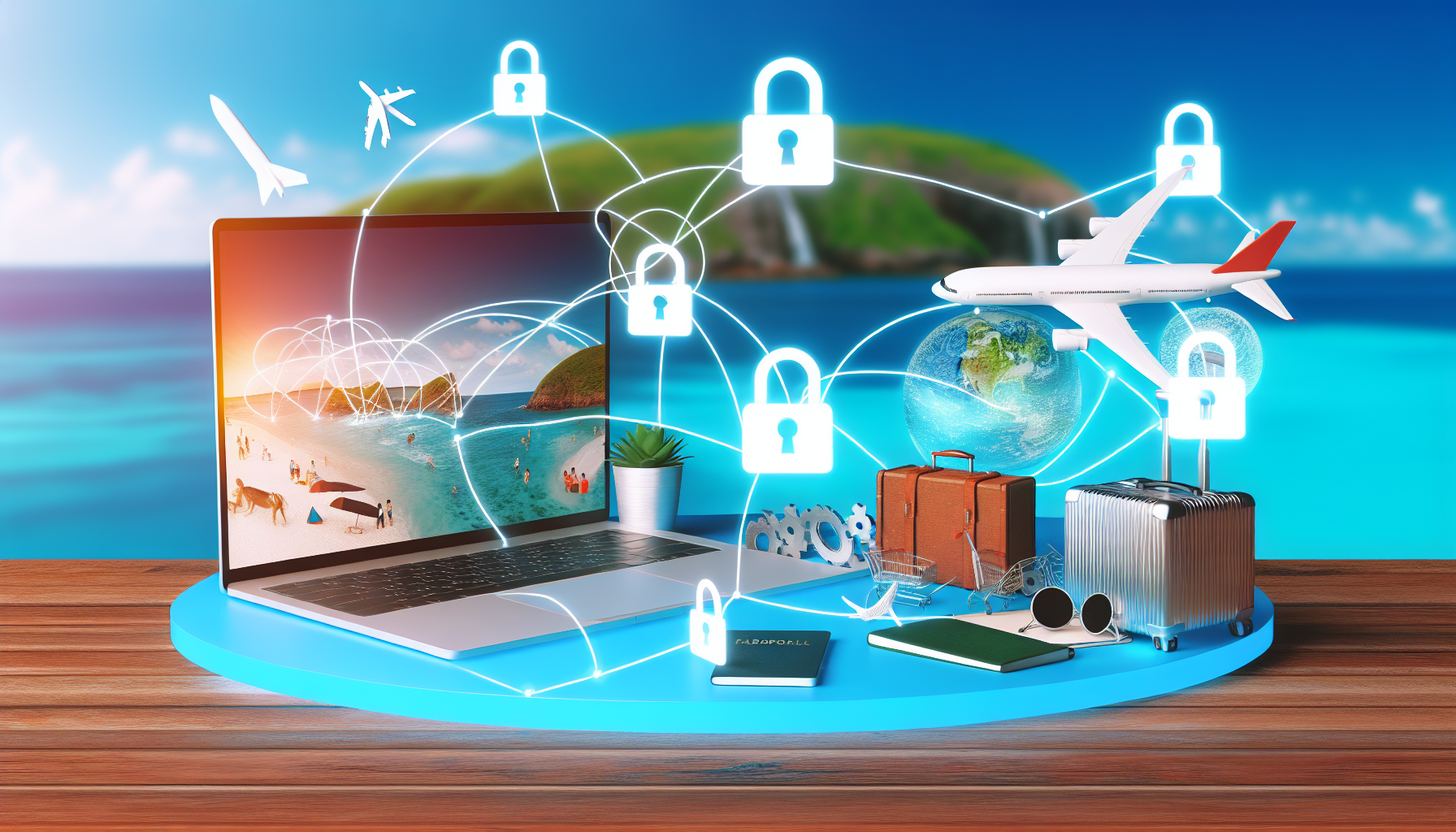Navigating the Digital Frontier: Protecting Your Digital Security While Traveling and Working Remotely
Imagine waking up to the panoramic view of a sun-kissed beach while sipping your morning coffee and tapping away at your laptop. Such is the life of a digital nomad — a blend of adventure, freedom, and technology. However, the world of remote work brings its own set of challenges, particularly in terms of digital security. With enticing destinations come risks of cyber threats that can put not just your work, but also your personal information, at risk.
Key Takeaways:
- Use Virtual Private Networks (VPNs) to secure your internet connection.
- Keep your software and devices updated.
- Utilize strong, unique passwords and two-factor authentication.
- Be aware of phishing scams and avoid public Wi-Fi for sensitive work.
- Regularly back up your data to secure locations.
Securing Your Connection with a VPN
When you’re hopping from one Wi-Fi hotspot to another, whether in a cozy café in Paris or a bustling market in Bangkok, a VPN is your best friend. This tool encrypts your internet connection, ensuring that your online activity remains private. Think of it as a secure tunnel through which your data travels, safe from prying eyes.
“Using a VPN is like having an invisible cloak for your data. It’s essential for digital nomads,” advises cybersecurity expert, Jane Doe.
Always Stay Updated
Software and device updates aren’t just about new features and a fresh interface. They’re crucial for security. Developers constantly patch vulnerabilities that hackers might exploit. Regularly updating your systems ensures that you close the door on potential threats.
Passwords and Authentication: Your First Line of Defense
“Password123” might be easy to remember, but it opens Pandora’s box of cyber threats. Use a password manager to create and store strong, unique passwords for each of your accounts. Moreover, enable two-factor authentication wherever possible. This extra layer of security requires a second form of verification — often a code sent to your phone — making it significantly harder for hackers to gain access.
Recognizing Phishing Scams
Phishing scams can be cleverly disguised as emails or messages from trusted sources, urging you to click on a link or share personal information. Always verify the sender’s authenticity before responding or clicking on any links. When in doubt, navigate to the website directly through your browser rather than using the provided link.
Avoid Public Wi-Fi for Sensitive Tasks
Free Wi-Fi is tempting, but it’s also a hotbed for hackers. If you must use public Wi-Fi, avoid accessing sensitive accounts like your bank or work accounts. Use your mobile data or a portable hotspot for secure connections.
| Aspect | Safe Practice | Risk Without Precaution |
|---|---|---|
| Internet Access | Use VPNs for encrypted connectivity | Exposure to cyber threats via public Wi-Fi |
| Software Updates | Regularly update all devices and software | Increased vulnerability due to outdated security patches |
| Passwords | Use strong, unique passwords and two-factor authentication | Risk of weak, easily compromised passwords |
| Phishing Scams | Verify sender authenticity before clicking on links | Falling victim to sophisticated phishing attacks |
| Data Backup | Regularly back up data to secure, separate locations | Loss of crucial data in case of device theft or failure |
Living Safely in the Digital World
- Set Up Remote Wipe Capabilities: Install apps allowing you to remotely wipe your device if lost or stolen.
- Use Encrypted Storage: Store sensitive files in encrypted folders or drives to shield them from unauthorized access.
- Regular Security Reviews: Frequently review your security settings and update them according to the latest best practices.
As you embark on your digital nomad journey, remember that your digital security is as important as your plane ticket. By taking simple but effective measures, you can make your remote work adventure safe and enjoyable.
For further reading, check out resources like:
FAQ
What is a VPN, and why do I need it?
A VPN (Virtual Private Network) encrypts your internet connection, making your online activities private. It’s essential for secure browsing, especially on public Wi-Fi.
How do phishing scams usually target digital nomads?
Phishing scams often come in the form of deceptive emails or messages, pretending to be from trusted sources, asking for sensitive information or prompting you to click malicious links.
Why are software updates crucial for security?
Software updates patch vulnerabilities and fix bugs that could be exploited by hackers. Keeping your software current ensures that you have the latest security protections.
Safe travels and secure connections!
